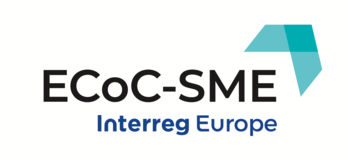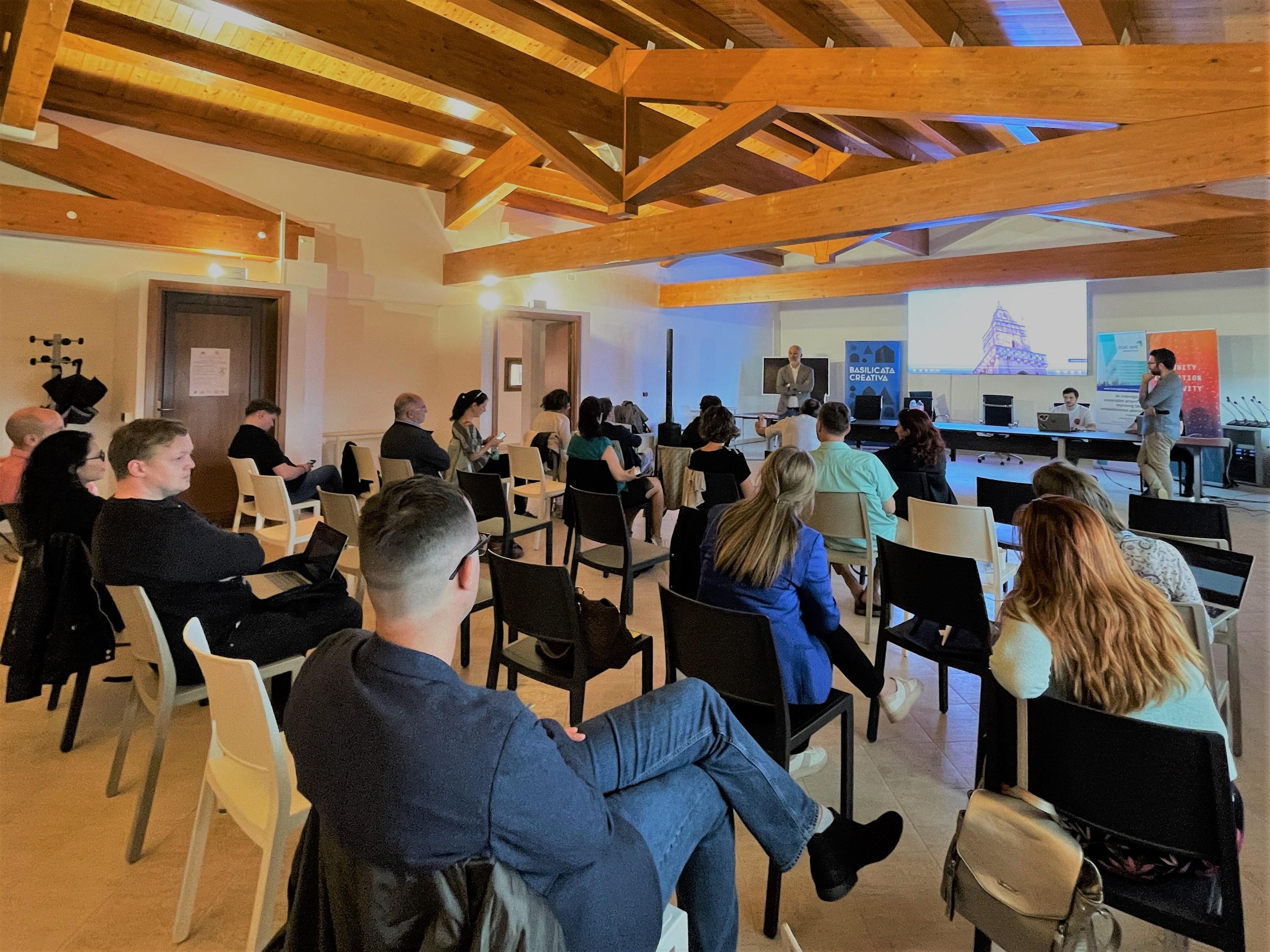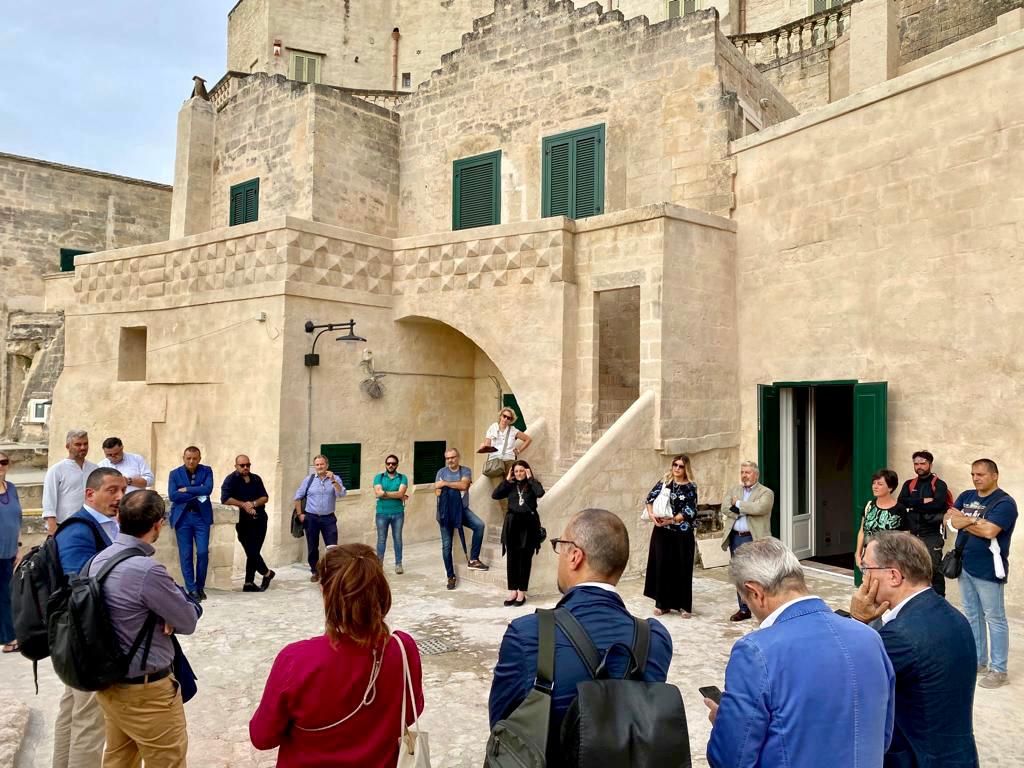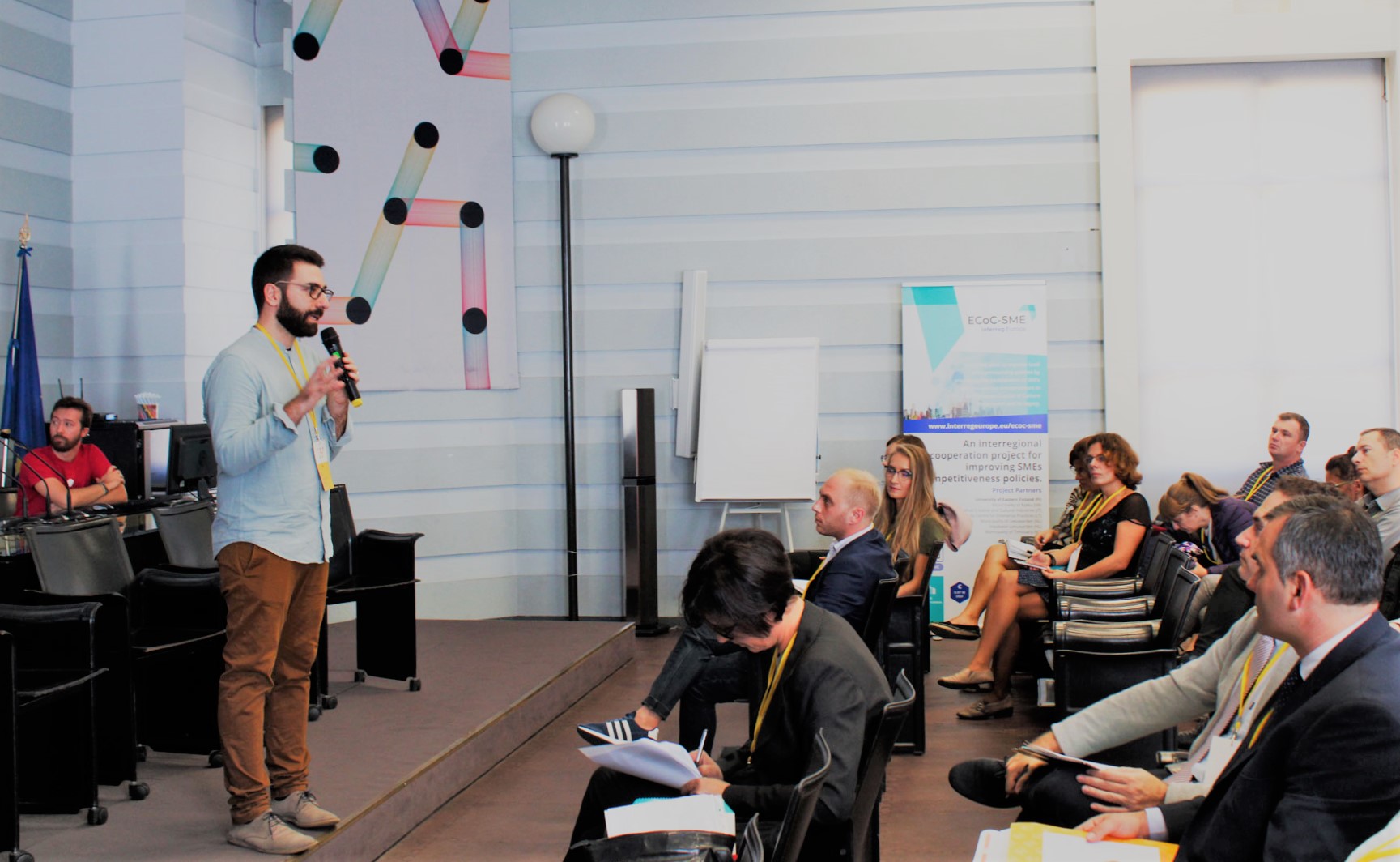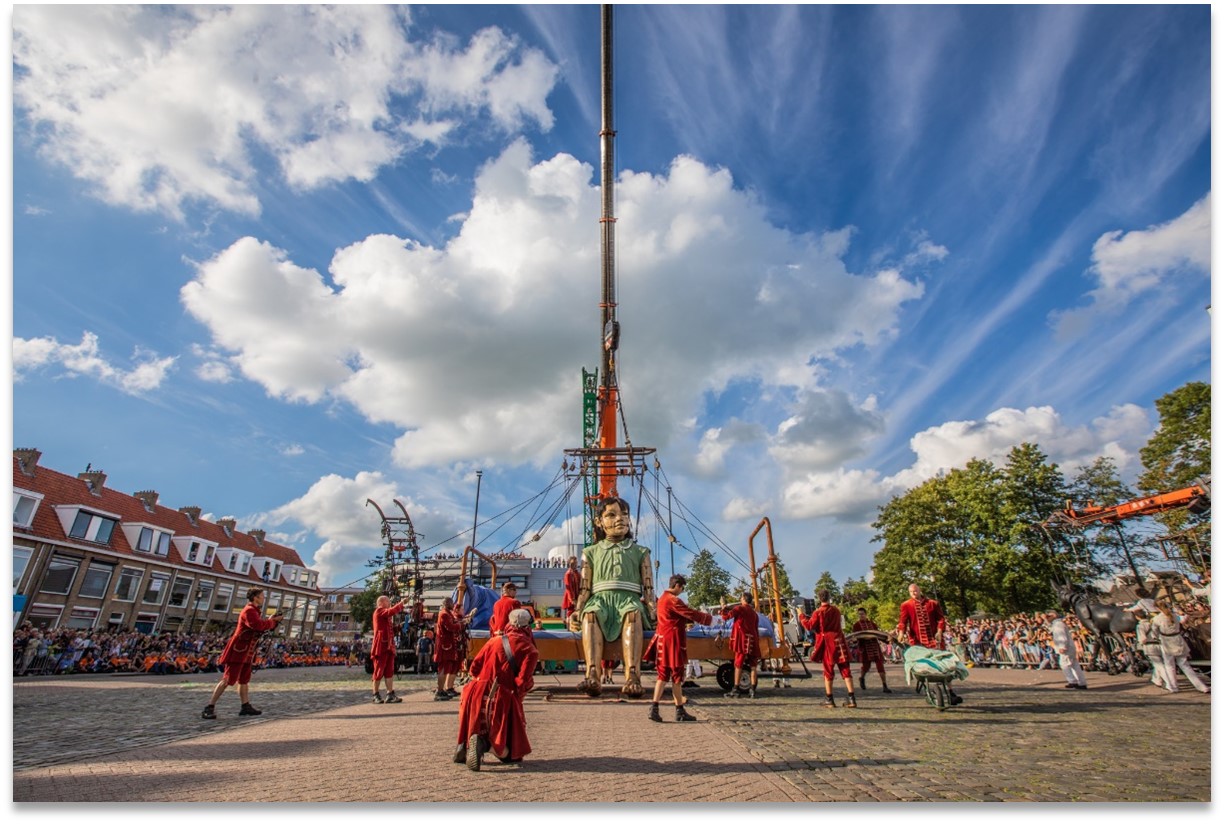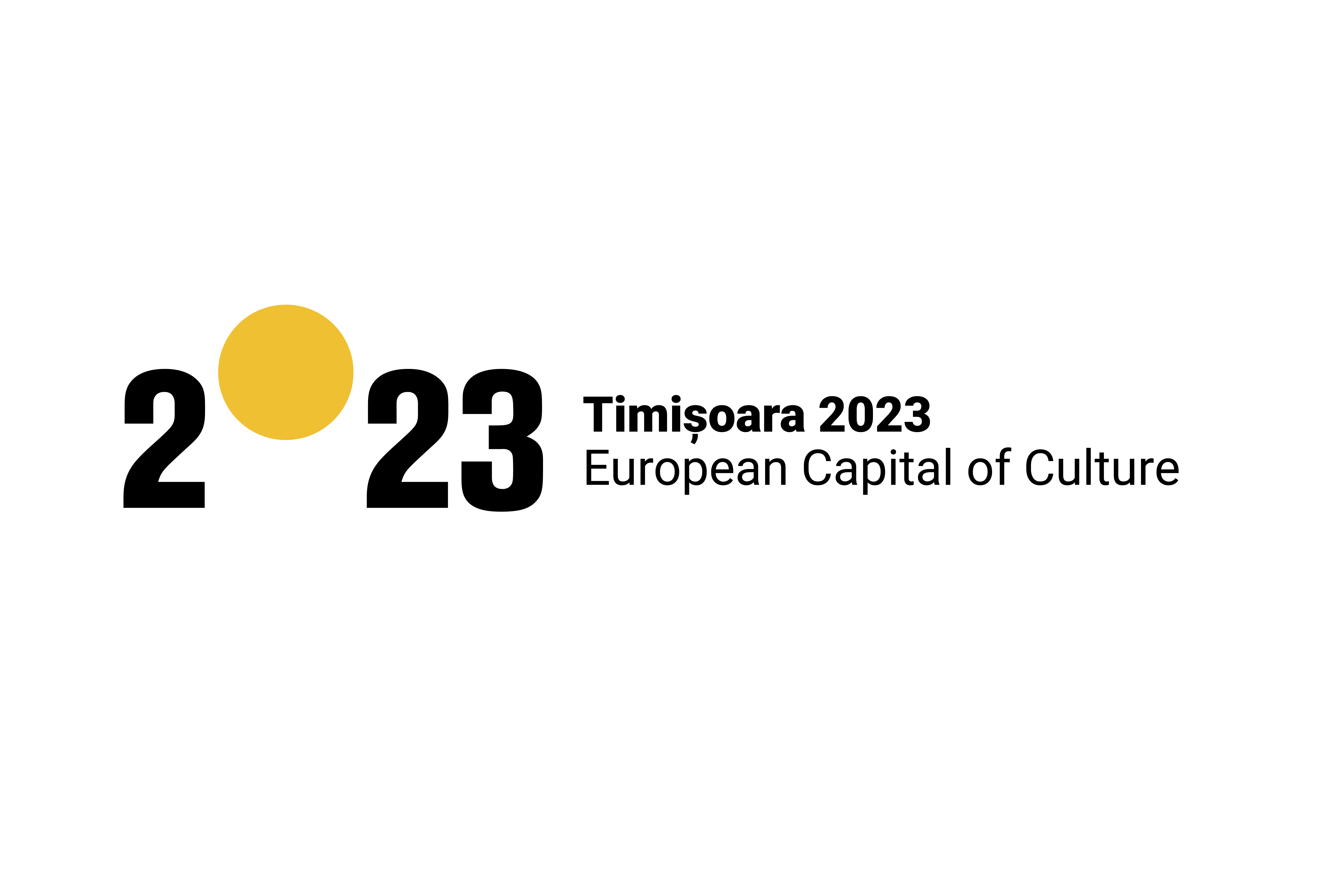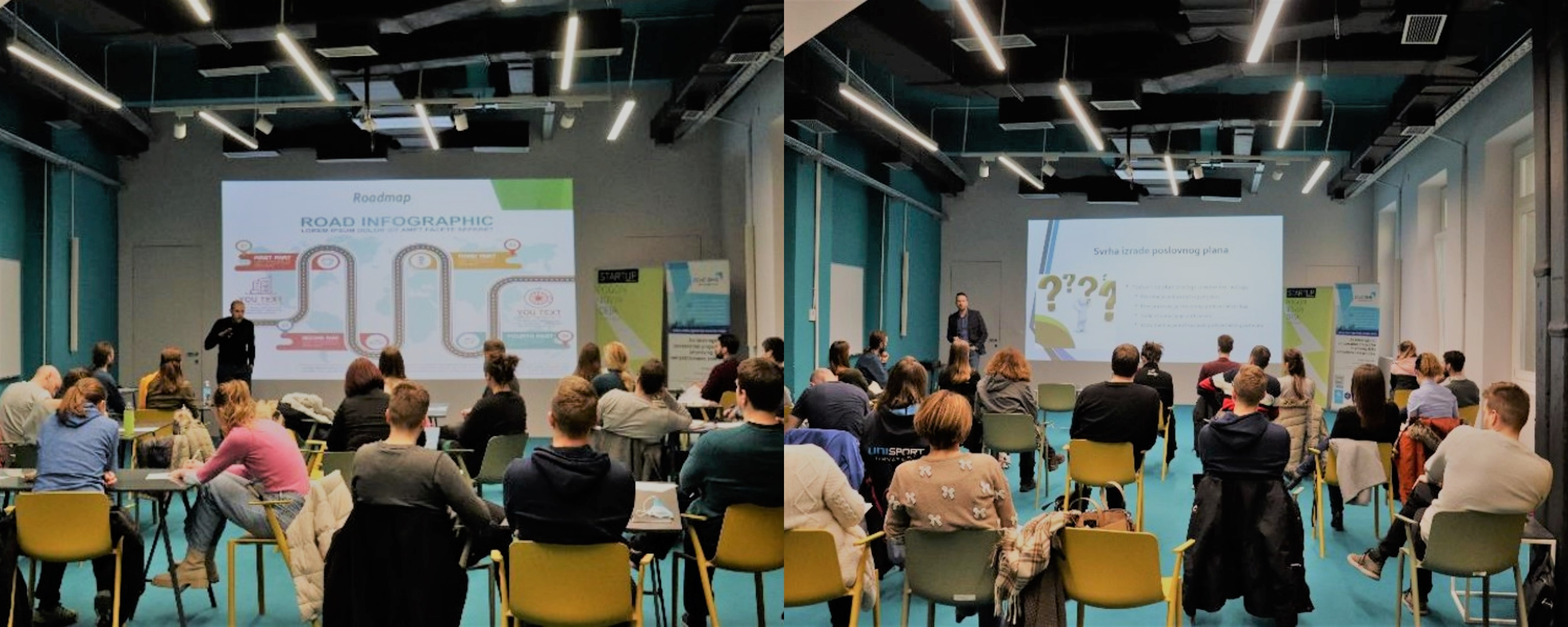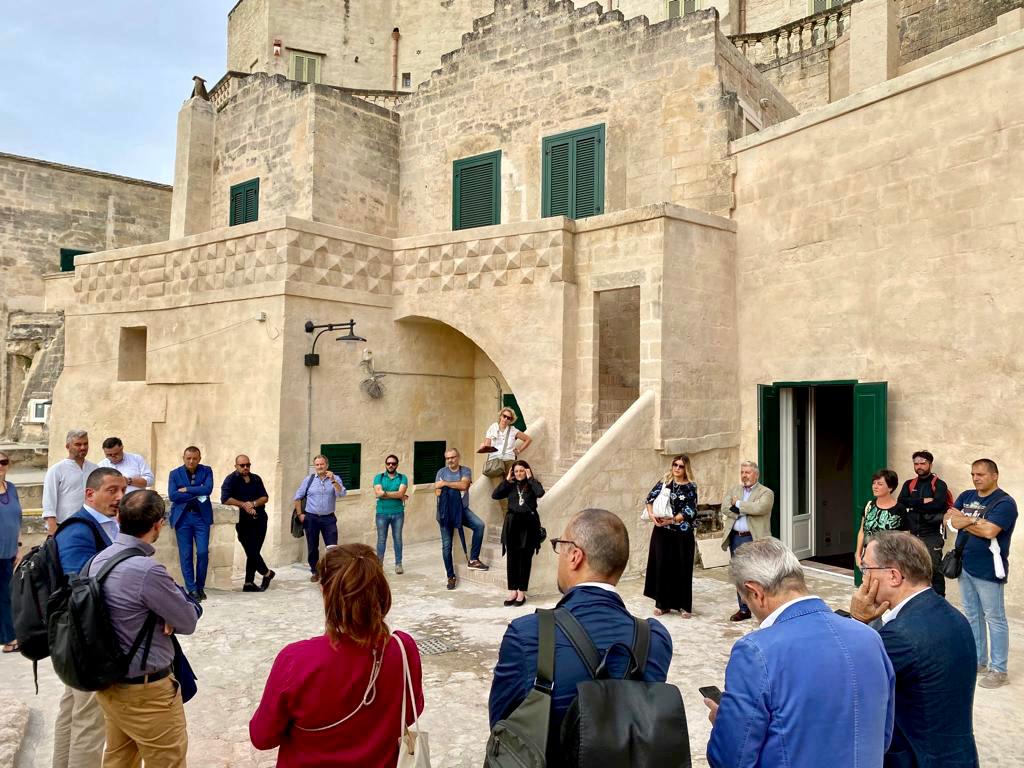Leeuwarden, Province of Friesland
The Municipality of Leeuwarden together with Incubator Leeuwarden worked to upgrade a policy instrument of their province, Friesland (NL), namely the Strategy Europe and Action Plan Europe 2020-2023 which is directed at improving the connection of the region with Europe through a stronger involvement of Frisian partners in European projects. A key element of the Action Plan is the creation of a ‘vehicle’ to boost European project development in the region.
Matera, Basilicata Region
Materahub, together with their stakeholder group, could build a strong network of relations spanning across the regional, national and international levels, which encouraged them to upscale their local project Heritage Smart Lab model - proposed to facilitate digitisation in the CCIs in Basilicata, Campania and Apulia - by submitting it to the European (DG Connect) call for proposals. The European Commission has granted its support, ensuring continuation of the ECoC-SME Action in the region (and beyond) for the next seven years, incorporated into the funding scheme of the Regional Operational Programme 2021-2027 of Basilicata (this means €5.5 million for the first three years). As such ECoC-SME has achieved a major impact on current policies: regional stakeholders have been convinced about the potential of investments in innovation in the CCI sector through concrete actions that could invigorate local communities and improve youth employment – and Basilicata Region has confirmed the CCI within its Smart Specialisation Strategy 2021-2027.
Rijeka
Facing difficulties posed by the pandemic, the City of Rijeka, working together with their local stakeholder group, have developed three financially ‘light’ yet innovative and impactful projects that have become integrative part of Rijeka’s entrepreneurship policy. These were to fill in gaps identified during local stakeholder workshops, that is, a need for improvement of cross-sectoral collaboration, digitalization, local innovation potential and SMEs sustainability in the city as well as education and mentoring. While their pilots during 2021-22 were funded (€ 4 000) under City’s Development Strategy 2014-2020 (Strategic Goal 2 “To develop a competitive economy on a knowledge-based society and new technology”), their success triggered further policy change. Under the Rijeka Development Plan 2021-2027, Strategic Goal 2 has been improved into “Working in Rijeka 2030 - University city for a new age, where advanced technologies and creative industry enrich its industrial heritage”, including new specific measures reflecting the themes where the new projects have been launched.
Kaunas
In Kaunas (LT), the policy instrument addressed with ECoC-SME actions – the Strategic Development Plan of the Kaunas City Municipality up to 2021-2023 – is a step towards the long-term vision to become a sustainable and civic community inhabited city, which is a leader in smart business and innovation and a centre for modern and inclusive culture, as well as a home for life-long learning and happy residents. Under the Plan’s priority area no. 1 “Sustainable Economic Development Promotion and Enhancing Competitiveness”, the objective to ensure favourable conditions for business and to encourage entrepreneurship includes several specific goals that served as the starting points for the ECoC-SME partner from the Vytautas Magnus University, in their work to design the Action Plan with innovative projects with the help of interregional learning and local stakeholder engagement.
Timișoara
ECoC-SME outputs were perfectly on time for the Municipality of Timișoara to enrich the Integrated Urban Development Strategy Timișoara Growth Pole 2021-2027, which was in the process of finalisation during 2020-21. The policy impact was reached also by the direct engagement of the experts working on the Strategy in the finalisation of the ECoC-SME Action Plan for Timisoara. Among the Strategy’s priorities are innovation and technological development, which requires the development of a supportive entrepreneurial ecosystem. Building on the creative energies from the Timișoara2023 ECoC, a new measure was added to the Strategy: “Stimulating cross-sectoral partnerships to include the CCI, business, and technology sectors in the context of the upcoming ECoC mega-event and its legacy years”. This includes diverse supportive and capacity-building activities for SMEs and start-ups from the CCI and other sectors in order to help them participate more actively in all three stages of the mega-event (preparation, the event year and the legacy period).
Funds influenced by the outputs of the ECoC-SME project in the 5 regions (€):
| Leeuwarden | 25 000 |
| Matera | ca. 5 million for 2022-2025 (indirect influence) |
| Rijeka | 4 000 |
| Kaunas | ca. 100 000 |
| Timisoara | 28 000 |
For the full scope of the policy impacts of ECoC-SME project, click here.
